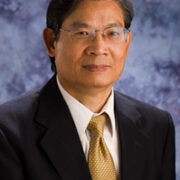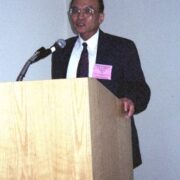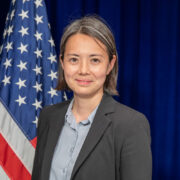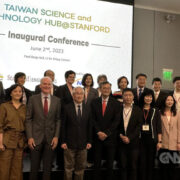台裔莊念祖研究火箭燃料助探索火星 NASA授最高榮譽
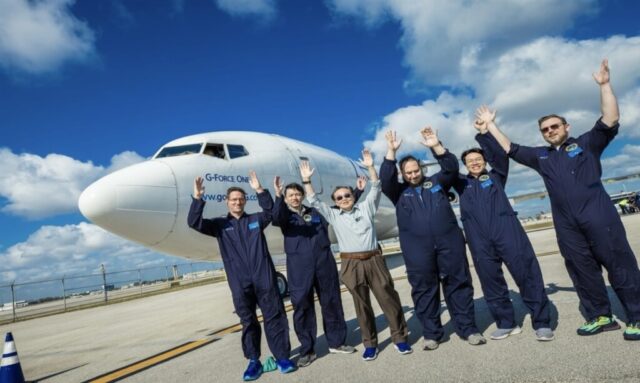
美國NASA近期授予台裔美籍科學家莊念祖(左3)非聯邦政府員工的最高榮譽,肯定他研究火箭燃料對太空探索的貢獻。(莊念祖提供)中央社記者石秀娟華盛頓傳真 113年7月5日
(中央社記者石秀娟華盛頓5日專電)台裔美籍科學家莊念祖日前獲美國太空總署頒發最高榮譽,肯定他研究火箭燃料對太空探索的貢獻。他的實驗都須在飛機以拋物線飛行創造出20秒的微重力狀態下完成,高度困難。他說:很感謝清華大學對他的教育。
佛羅里達大學(University of Florida)機械與航空工程系教授莊念祖6月25日獲美國國家航空暨太空總署(NASA)頒發「傑出公共服務獎章」(Exceptional Public Service Medal),這是授予非聯邦政府員工的最高榮譽,莊念祖是今年唯一獲獎者。
感謝清大打下基礎 美國念書都拿4.0
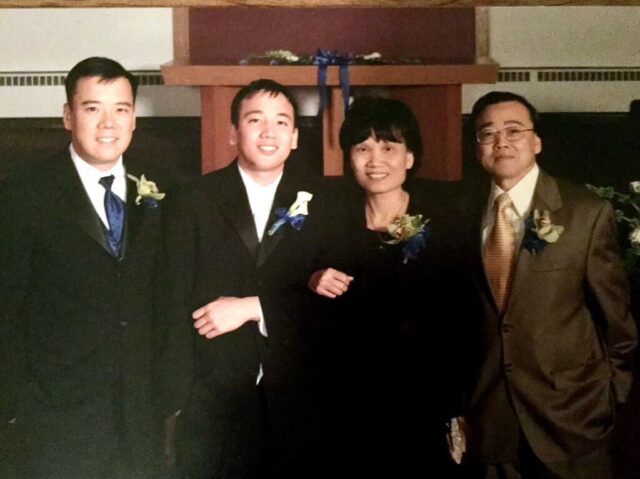
台裔科學家莊念祖(右)清大畢業後赴美留學,研究火箭燃料獲NASA肯定,希望將技術運用到科技產品,協助台灣電子業發展冷卻系統。圖為他與家人合影。(莊念祖提供)中央社記者石秀娟華盛頓傳真 113年7月5日
「我是清華核工系畢業的,在美國碩士、博士能讀得很順利,我非常感謝我的母校在科學、工程方面為我打下很好的基礎。」莊念祖日前接受中央社視訊訪問,多次提到他對清大的感念之情,在清大所學奠定他赴美求學的底子。
莊念祖說,他是清大核工系第3屆,當時全校只有4個系,還包括數學、物理及化學,很多教授都剛從美國回台,傳授最先進的知識,扎實基礎讓他從密蘇里大學(University of Missouri)核工研究所、到賓州大學(University of Pennsylvania)機械系博士班,修課成績都是4.0。
研究火箭燃料 可飛更遠探索火星
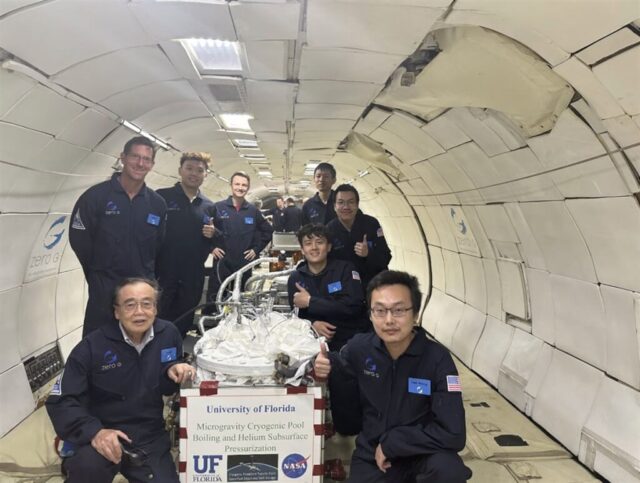
台裔美籍科學家莊念祖(左1)與學生們研究如何減少火箭燃料儲存與運送的耗損,利用飛機拋物線飛行創造的極短暫微重力時間做實驗。(莊念祖提供)中央社記者石秀娟華盛頓傳真 113年7月5日
莊念祖研究的是如何有效降低火箭燃料(液態氫或液態氧)在儲存與運送過程的揮發耗損,讓火箭在有限的燃料下能飛行得更遠。這對於人類探索月球、甚至更遙遠的火星或小行星,具有極重要的意義。
他說,火箭使用的液態燃料須保存在攝氏零下250度到零下200度,燃料的儲存槽、及將燃料自儲存槽運送到引擎燃燒室的管路則是處於室溫環境。他的實驗是為找出有效冷卻方法,降低儲存槽、管路溫度,減少燃料因高溫揮發而耗損。
在這個「太空低溫液態燃料熱流管理」領域,莊念祖的實驗成果領先美國其他實驗室數十年。
莊念祖說,他博士論文研究沸騰熱傳,這是一種透過氣泡達成冷卻的過程,水煮沸時會形成氣泡,氣泡上升至表面破裂變成水蒸氣,釋放熱能。太空中沒有重力,就沒有浮力,氣泡不會上升。他好奇太空的熱傳過程,1992年首度寫信向NASA提出研究案,開始踏入太空研究。
莊念祖與NASA合作長達32年,NASA也早將他提供的實驗數據用於設計燃料的儲存及運送系統,減少燃料耗損。NASA在表彰詞提到,莊念祖連續30年對NASA太空低溫液態燃料管理科學與技術有「卓越、持續和多面向的貢獻」。
飛機拋物線飛行下實驗 每次只有20秒
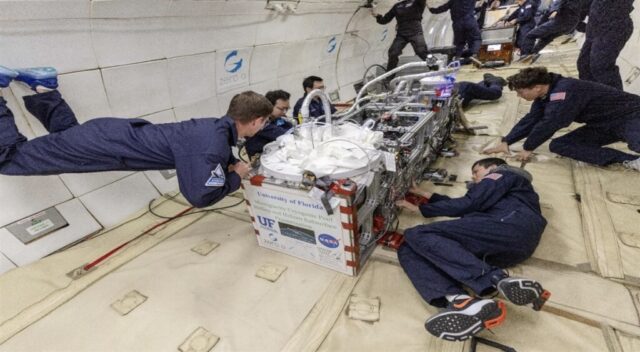
台裔美籍科學家莊念祖領導的實驗室,利用飛機拋物線飛行創造的微重力環境,實驗得出有效減少火箭燃料耗損的方法,領先全美數十年。(莊念祖提供)中央社記者石秀娟華盛頓傳真 113年7月5日
莊念祖說,火箭能載運的燃料有限,把燃料從地球送到太空的費用也很高。在有限的燃料下,讓火箭飛更遠的唯一方法是減少耗損,「我們證明用我們的方法能減少50%至60%的流失」,等於同樣的燃料可讓火箭飛2倍遠的距離。
莊念祖最初以電梯井作為自由落體實驗的落塔,模擬微重力環境。2012年起,NASA與Zero G公司合作,利用飛機拋物線飛行創造極短暫的微重力或無重力環境進行實驗。每飛一次拋物線,會有約20秒的微重力或無重力環境。
「我們的實驗非常困難,美國所有研究機構,包括大學,只有我們的實驗室成功。」莊念祖說,能做實驗的時間很短,用來做實驗的液態氮(取代易爆炸的液態氫、液態氧)也要保持在攝氏零下200度,得花相當的功夫才能保存。
莊念祖的實驗室至今完成24次飛行,每次飛30次拋物線,等於每次飛行只有600秒的微重力時間可做實驗。直到近2年才有普渡大學(Purdue University)加入做這類實驗。
把未知變知識 盼助台灣科技業發展冷卻系統
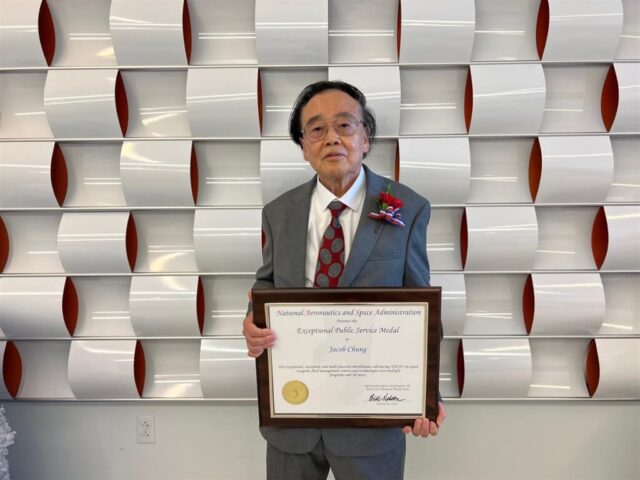
莊念祖6月25日獲得美國國家航空暨太空總署(NASA)授予傑出公共服務獎章,這是NASA對非聯邦政府員工的最高榮譽。(莊念祖提供)中央社記者石秀娟華盛頓傳真 113年7月5日
莊念祖23歲大學畢業後到美國留學。他說,當時除了一只皮箱,身上就帶美金1000元(依1970年匯率,約新台幣4萬元)。在美國追夢,也希望回饋美國對他的栽培,他對太空探索的努力能獲得NASA肯定,也可以說完成他的美國夢。
莊念祖2歲隨父母從江蘇來到台灣,太太也是台灣人,育有2子。77歲的他仍沒有退休打算:「我們能有一些發現,把大家不知道的變成知識,是最大的樂趣」。
莊念祖心中還有一件他一直想做的事,就是協助台灣電子及電腦科技業發展冷卻系統。
他說,從中央處理器(CPU)、繪圖處理器(GPU)、伺服器、晶片、到量子電腦,這些高性能設備都需要強大有效的冷卻系統,確保不過熱、穩定運轉和最佳效能。他希望將液態冷卻技術從火箭燃料領域擴展到科技產品,幫助台灣在全球科技產業中,保持領先地位。(編輯:田瑞華)1130705
American dream: Taiwan-born UF professor wins prestigious NASA award
GAINESVILLE, Fla. (June 28, 2024) — On this Fourth of July, University of Florida professor Jacob Chung, Ph.D., stands as the epitome of the American Dream.
In 1971, at age 23, he moved to the United States from Taiwan with one suitcase and $1,000. He had earned his bachelor’s degree from National Tsing Hua University in Taiwan and planned to become an aerospace engineer in America. He entered the master’s program in the nuclear engineering department at the University of Missouri.
“The feelings that I had at that time basically were excitement, hope and thankfulness about the opportunities ahead,” recalled Chung.
Now an esteemed professor with the UF’s Department of Mechanical and Aerospace Engineering, Chung was awarded the Exceptional Public Service Medal from NASA in late June. The award is among the highest honors bestowed by the NASA Glenn Research Center Awards Office and is “an acknowledgement of significant contributions to NASA’s mission and purpose,” according to the award letter.
“As an immigrant, I have been telling myself that I need to pay back my adopted country,” Chung said. “With this award, I feel that I have done my share of making contributions toward NASA’s mission and purpose, and also my patriotic work has been recognized.”
Chung earned the award due to his “exceptional, sustained, and multi-faceted contributions advancing NASA’s in-space cryogenic fluid management science and technologies over multiple programs and 30 years.”
“Dr. Chung’s exceptional research and his contributions to NASA are shaping the future of space exploration, bringing new possibilities to human discovery and tremendous pride to Gator Nation,” said UF President Ben Sasse. “As we continue to explore the moon, Mars, and beyond, innovators like Dr. Chung will drive us forward.”
“We are tremendously proud of Dr. Chung’s extraordinary contributions to NASA’s mission and purpose, epitomizing dedication and excellence in advancing in-space cryogenic fluid management over three decades,” said Forrest Masters, Ph.D., interim dean for the Herbert Wertheim College of Engineering. “This prestigious award not only recognizes Dr. Chung’s illustrious career but also underscores the significant impact he has made at the University of Florida.”
Chung’s work is primarily centered on in-space thermal-fluid management of traditional chemical rocket propulsion systems. He and his students have been conducting research for NASA on space thermal-fluid management technologies since 1992.
His contributions to NASA have focused on optimizing the use of propellants in rocket engines, which is essential for longer-distance space exploration. It is critical to human exploration of the moon, Mars, and, potentially, asteroids. NASA sees this exploration as a major focus going forward, which makes the effective, sufficient, and reliable supply of cryogenic propellants crucial.
“The sole objective of my propellant work is to conserve propellant and minimize the ‘propellant boiloff losses’ as the rocket engine can only use 100 percent liquid form of propellant,” Chung explained.
“All the accomplishments would not have been possible without the hard work of the former students in my lab,” Chung said, naming Trevor Snyder, Jeff Sitter, Yue Ma, Rick Moehrle, Kun Yuan, Hong Hu, Sam Darr, Chase Camarotti, Jun Dong, Hao Wang, and Bo Han Huang.
Chung and his wife have two sons, one a physician and the other an engineer. Chung started working at UF in 1998 after 19 years on the faculty of Washington State University. He earned his Ph.D. from the University of Pennsylvania.
“In a nutshell,” he said, “I have achieved my American Dream.”
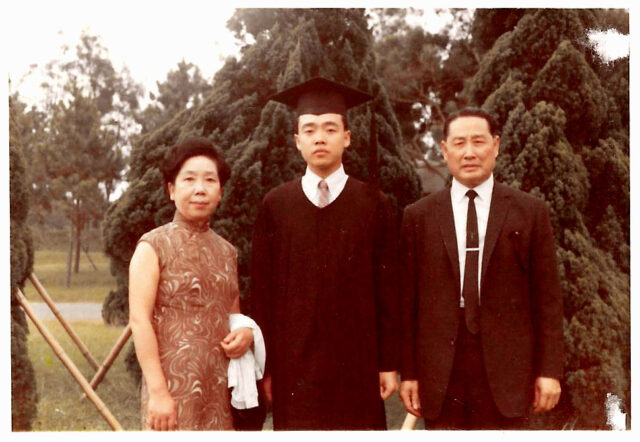
Jacob Chung poses with his family after graduating with his bachelor’s degree in Taiwan in the early 1970s. He moved to America shortly after this photo was taken.
Source from 中央社、University of Florida
Posted on 7/9/24

